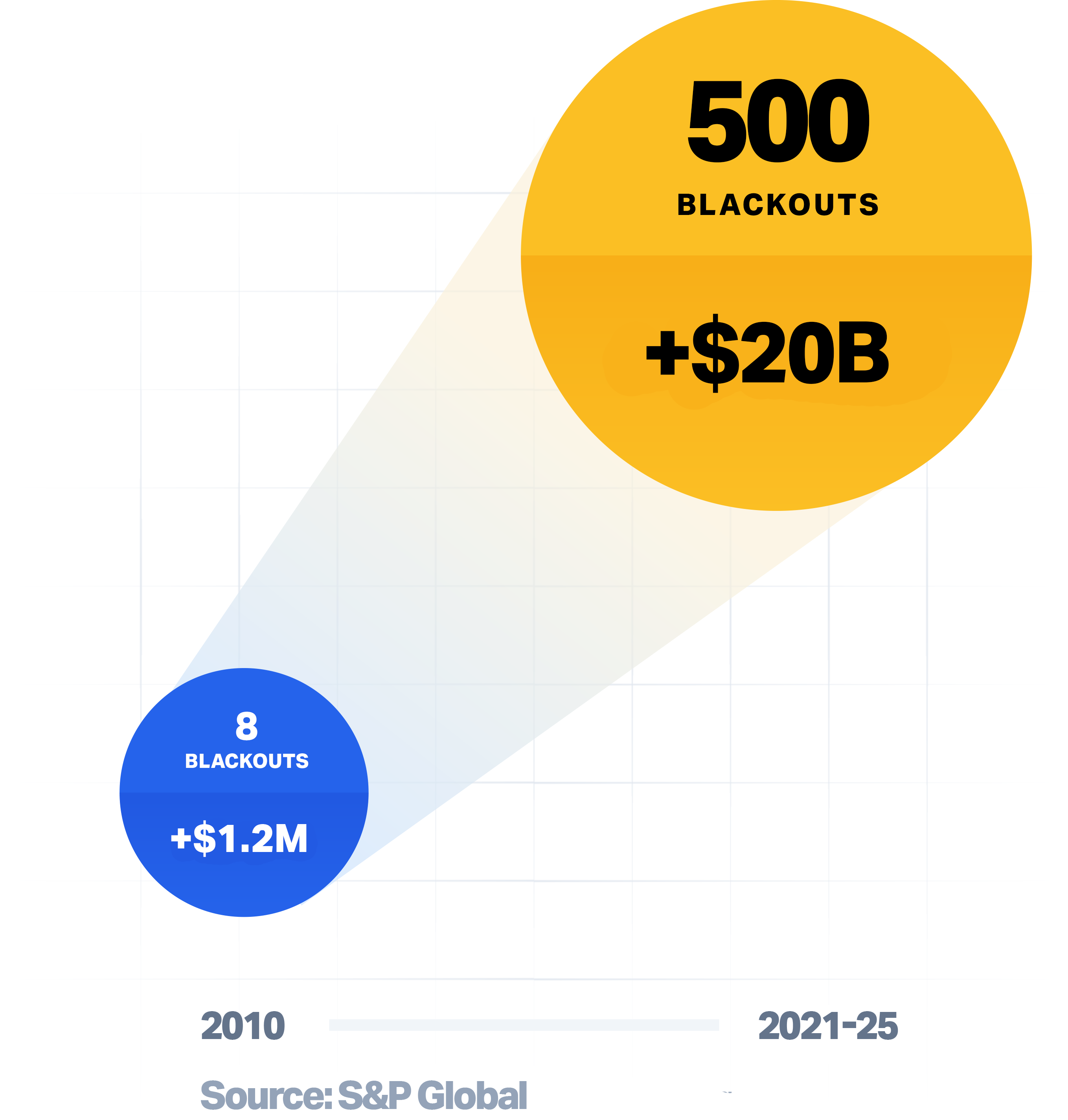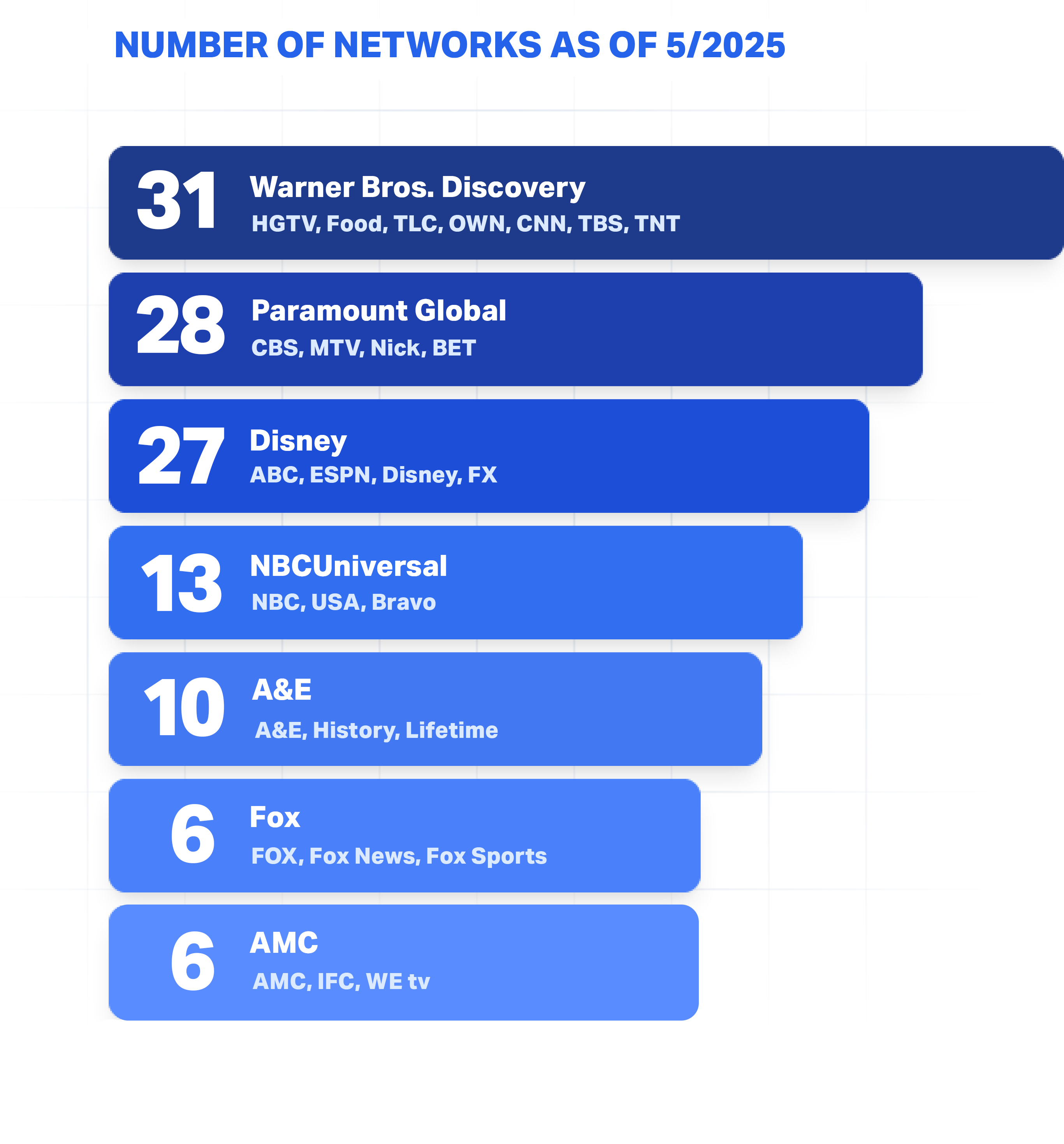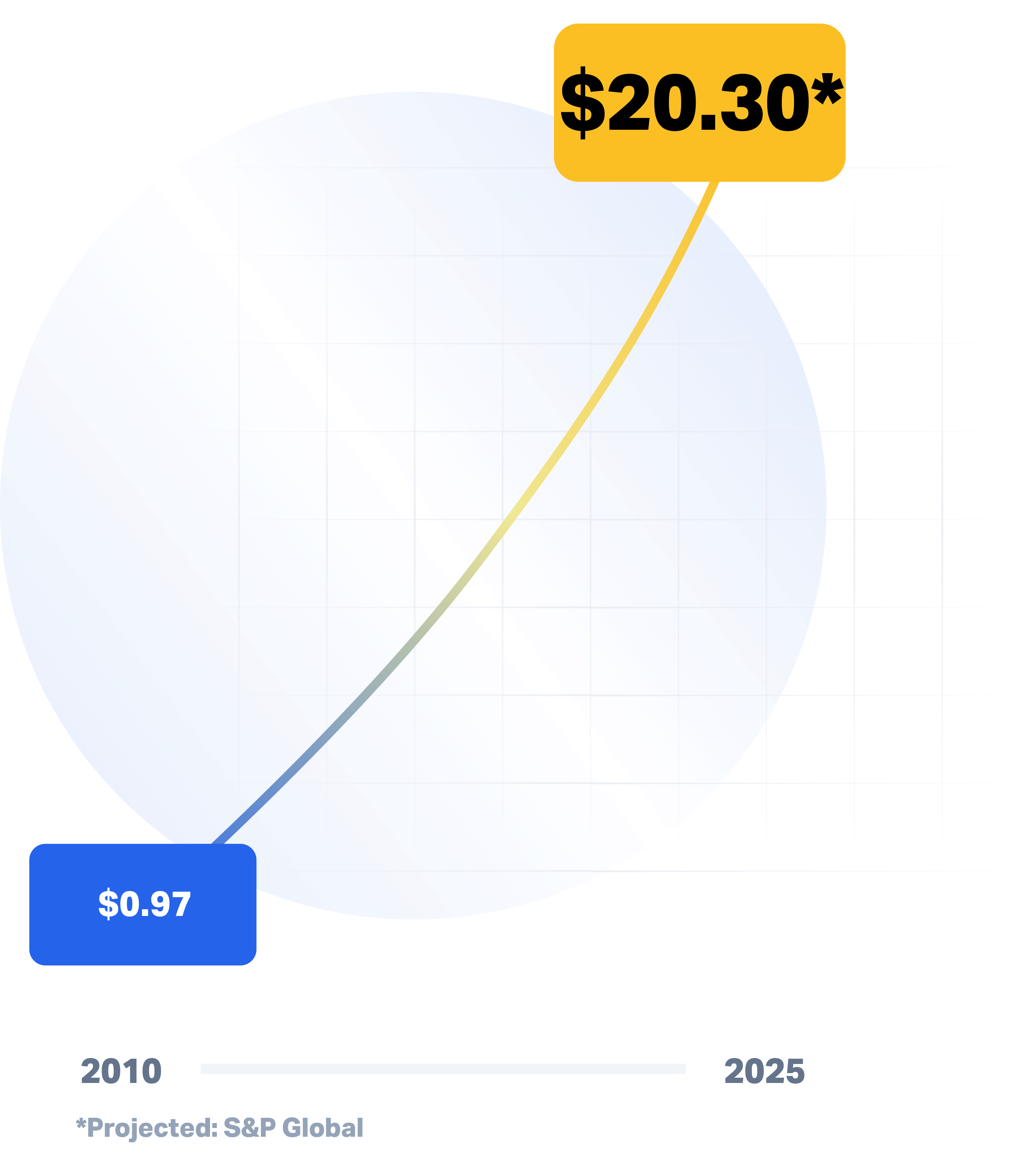
Welcome to TVOnMySide
MCTV's hub for information on our negotiations with the networks on your lineup. We are committed to providing quality TV programming at a competitive price and we fight hard against excessive fee increases from the networks.
We're on your side.
MCTV is a local company that delivers a range of products for home and business including Broadband, Digital TV, Phone and security systems. We employ many of your neighbors and play an active role in the community.
For more information about our company, visit our website.

Contact Us
Please use this form to contact us. We will do our best to respond as soon as possible.
330-833-4134Recent Disputes
Networks black out their signals to try to get you to switch providers to pressure us to agree to their demands, and they do this to every TV provider; in 2010, there were 8 blackouts and that number has already hit 40 in January of 2025 alone.* Even on those rare occasions when Networks pull their signal, we’re on your side to get them back quickly at a fair price, so the networks are usually dark for only a short period of time.
Here are some examples of recent disputes:
*Source: 2025 ATVA
Why Disputes Happen
Over the years, we've negotiated hundreds of programming agreements behind the scenes, privately with no disruptions of service. But to the network and TV station owners, these disputes are not about respecting viewers with no interruptions, it's all about the money. To get higher fees, networks don't hesitate to pull the plug on viewers.
Every once in a while, these negotiations for the right to provide their programming to you become public and may result in a network or TV station removing their channel from your lineup. Networks hope that this will get you to pressure us to return programming at any cost, which usually means paying them more. This is why we fight for you - to minimize the increased cost of programming that we are forced to pass along to our customers.
Blackouts Help Stations Increase Fees
TV Stations use blackouts to pressure providers to accept their demands for higher fees to increase their revenue.

Powerful Programmers
The television landscape is changing faster than ever, and it's all about power. Media giants, who already control over 90% of available networks and TV stations, are scaling up their businesses through acquisitions and mergers. They use their size and power to demand more money, with little regard to how it impacts your wallet.
In recent years, there have been many huge mega-media mergers: Gray Television purchased Meredith Broadcasting for $2.3 billion. Disney bought Lucasfilm, Marvel, Pixar, fubo and 20th Century Fox and launched Disney+. AT&T acquired TimeWarner to create WarnerMedia, only to spin it off and merge with Discovery who had recently acquired Scripps Networks. Sinclair Broadcasting purchased 21 regional sports networks from FOX for $10 billion. Amazon announced the purchase of MGM Studios, home of James Bond.
All these multi-billion-dollar deals are aimed at better competing with the Netflixes of the world and squeezing more money out of video providers. We negotiate with these big corporations to make sure you get all the channels you want at a fair price.
Media Giants Own Most TV Networks
A few media giants own most of the networks and use their size to demand higher fees and network carriage.

Broadcast retransmission fees
Just like cable networks, broadcast TV stations want their cut of your monthly bill. They do this by charging retransmission fees. These fees are made possible by a 1992 federal law that requires cable operators and other providers to obtain permission to carry their stations. Broadcasters set the rate for these fees and the only control we have is to work hard to negotiate the best deal that we can on your behalf.
Broadcast stations make money by charging for ads and charging us to carry their programming. According to industry analyst Kagan, TV station advertising revenue has declined for the last three years. Broadcasters seem to be making up for this shortfall by placing more emphasis on retransmission fees paid by us and other TV providers.
The negotiations can get even more complicated. Station owners can ask for other compensation in addition to retrans fees, such as carriage of an additional channels. These can range from additional digital broadcast stations to popular cable networks they might own to seldom-watched niche networks you may never have heard of.
Monthly Retrans Fees per Customer

Skyrocketing Retransmission Fees
A gallon of milk cost approximately $3.25 in 2010. Today it costs around $3.90, an average annual increase of 1.2% from 2010 to 2025. During that same period, local TV station fees increased EVERY year by an average of 23%.*
If a gallon of milk increased at that same rate, it would cost over $72.50 today.
*AmericanTelevisionAlliance © 2025, US Inflation Calculator
Sports
TV rights for sports is the highest it's ever been because broadcast and cable networks continue to escalate what they pay for sports TV rights. Both cable and broadcast networks pay billions of dollars a year to bring you live games. This forces them to charge TV providers higher fees, which has a significant impact on your monthly bill.
TV providers have tried for years to minimize out-of-control sports programming costs. Most broadcast stations and cable networks that carry sports require that we offer their channels in our most popular levels of service, forcing almost everyone to pay for sports programming - whether they watch it or not.
We want you to have access to the best programming available, including sports. That's why we negotiate hard with stations and programmers to keep costs down, but these large increases in fees are unsustainable for our customers and our business.

Streaming services
In the beginning, streaming services promised a cheap, innovative alternative to your local television provider. That promise did not last long. Streamers ran into the same price gouging by programmers that we have faced for years. Now those services are beginning to look a lot more like the traditional cable services they promised to replace…with prices to match.
The common denominator of both streaming companies and traditional TV providers like us, is the fact that we aren't really fighting with each other to keep prices down. We're fighting with content providers like NBCUniversal, Disney, Warner Bros. Discovery, ViacomCBS and Fox Corporation, which license out the rights for us to offer their channels. We all want to keep prices low, but these mega-media giants refuse to license their content reasonably.


